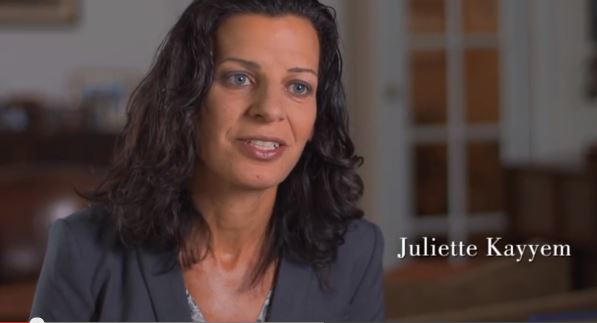The Newburyport Daily News recently succeeded in opening to the public a closed clerk magistrate’s show cause hearing on a brawl that occurred outside a Plum Island beach house.
But it wasn’t without drama, including a surprise last-minute ruling by Justice Robert J. Cordy of the state Supreme Judicial Court that could help Massachusetts media gain wider access to such hearings.
Clerk magistrate show cause hearings are typically closed in Massachusetts to protect the privacy of the accused because they have not yet been formally charged. But the clerk magistrate can open a hearing if there is legitimate public interest in the proceeding.
Robert Bonin, clerk magistrate for the Newburyport District Court, declined that option when a Daily News reporter showed up at the Aug. 20 hearing on whether formal charges were warranted against seven persons police identified as parties to a vicious Plum Island street fight on Memorial Day of last year.
Peter Caruso Sr., the paper’s attorney, promptly filed a motion to open the courtroom to the public on the basis police had already released the names of the parties, the brawl had been prominently publicized in the media, and there was obvious public interest in the court proceeding.
Clerk Magistrate Bonin denied Caruso’s motion, citing the historic rights of the accused to a closed courtroom. Mere minutes before Bonin was to begin the hearing, Caruso appealed to District Judge Peter Doyle to intercede.
Doyle also rebuffed Caruso, but he did postpone the show cause hearing for an hour (to 11 a.m.) to give the paper’s attorney an ever-so-brief opportunity to appeal to the SJC. Caruso quickly scribbled his argument on legal paper and faxed it to the high court.
With the 11 o’clock hour approaching and no response, Bonin again prepared to convene the closed hearing when his phone rang. The SJC told the clerk magistrate to delay for another half-hour so Justice Cordy could research the paper’s appeal.
Then, alas, at 11:30 a.m. sharp, Cordy’s three-page ruling arrived by fax, instructing the clerk magistrate to open the hearing to the public on the ground the brawl and subsequent investigation “had a profound effect” on residents of the Plum Island neighborhood and the public perception of the police.
It was a rare victory for the public, but also a lesson in the value of the press challenging clerk magistrate show cause hearings when a significant issue is at stake.
There is latitude in the district court rule regarding such hearings.
The rule states: “If the application [for issuance of process] is one of special public significance, and if in the opinion of the magistrate the legitimate interest of the public outweighs the right of privacy in the accused, the hearing may be open to the public, and should be conducted in the formal atmosphere of a courtroom.”
Caruso called Justice Cordy’s decision a “breath of fresh air.” He said too often the media fails to challenge clerk magistrate show cause hearings because they are presumptively closed to the public.
“There are cases that cry for a full and open public airing to ease any doubt of secret dealings,” said Caruso. “The news media needs to be more aggressive in contesting the closing of the courtroom in these cases.”
Caruso knows of what he speaks. He was also the attorney who successfully opened the clerk magistrate hearing in Boston in 2003 to determine if assault and battery charges would be issued against New York Yankees pitcher Jeff Nelson and outfielder Karim Garcia for fighting with a Fenway Park groundskeeper during a playoff game.
The fight followed the infamous bench-clearing melee in the fourth inning in which Yankees coach Don Zimmer rushed Red Sox pitcher Pedro Martinez, who shoved Zimmer to the ground.
This post was written by William B. Ketter, vice president of news, Community Newspaper Holdings Inc. CNHI owns the Newburyport newspaper.
 Mike Sheehan, chief executive officer of The Boston Globe and former CEO of the advertising firm Hill Holliday, will be the keynote speaker at the annual meeting of the Massachusetts Newspaper Publishers Association.
Mike Sheehan, chief executive officer of The Boston Globe and former CEO of the advertising firm Hill Holliday, will be the keynote speaker at the annual meeting of the Massachusetts Newspaper Publishers Association. Until launching her campaign for governor, Kayyem was a columnist for the Boston Globe, analyst for CNN, and lecturer at Harvard’s Kennedy School of Government. In 2013, she was a
Until launching her campaign for governor, Kayyem was a columnist for the Boston Globe, analyst for CNN, and lecturer at Harvard’s Kennedy School of Government. In 2013, she was a 
 Massachusetts Attorney General Martha Coakley will be the featured speaker at this year’s luncheon. Re-elected to her second term as attorney general in 2010, Coakley previously served for eight years as district attorney in Middlesex County. Earlier, she was chief of the Child Abuse Unit in Middlesex. She began her legal career in 1979, practicing litigation at the firms Parker, Coulter, Daley & White and later at Goodwin Proctor. She joined the Middlesex DA’s office in 1986 and also served on the U.S. Justice Department’s Organized Crime Strike Force.
Massachusetts Attorney General Martha Coakley will be the featured speaker at this year’s luncheon. Re-elected to her second term as attorney general in 2010, Coakley previously served for eight years as district attorney in Middlesex County. Earlier, she was chief of the Child Abuse Unit in Middlesex. She began her legal career in 1979, practicing litigation at the firms Parker, Coulter, Daley & White and later at Goodwin Proctor. She joined the Middlesex DA’s office in 1986 and also served on the U.S. Justice Department’s Organized Crime Strike Force.